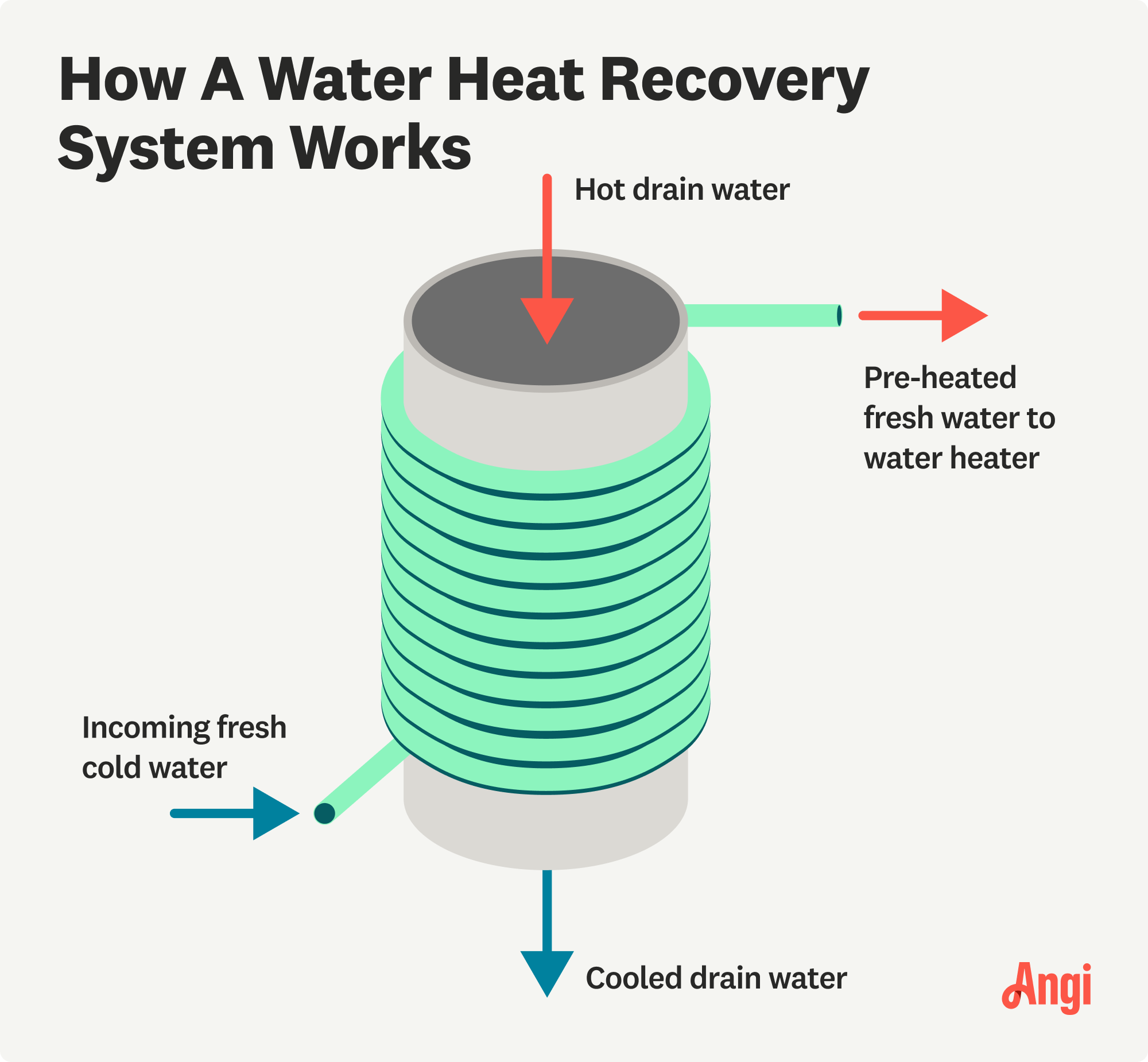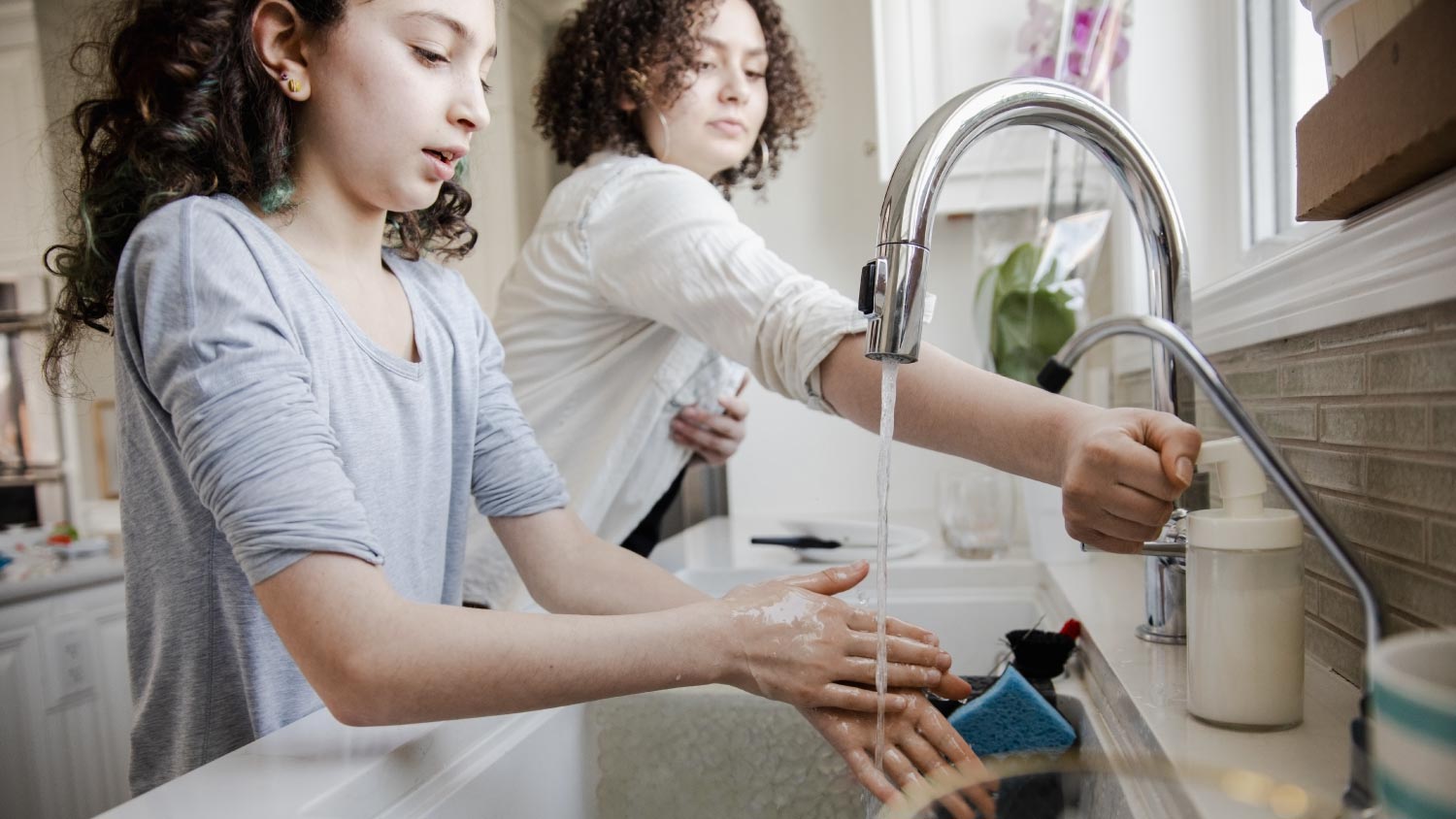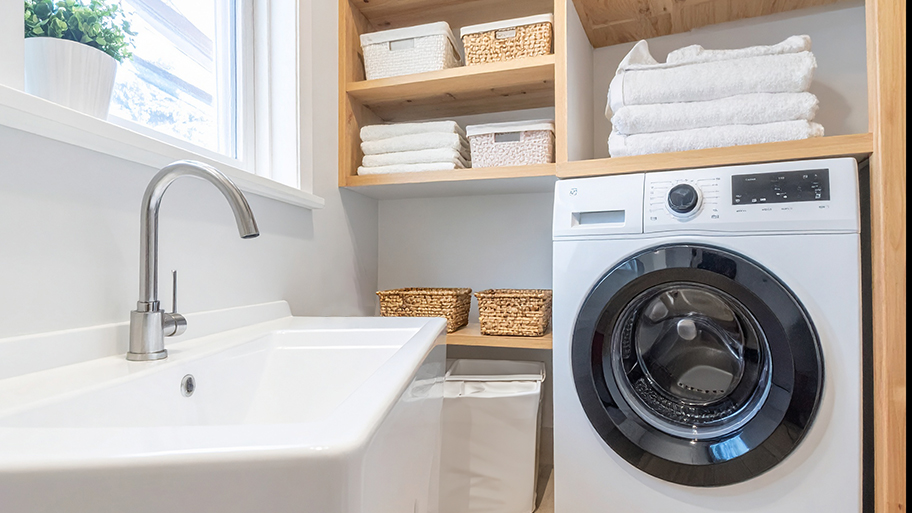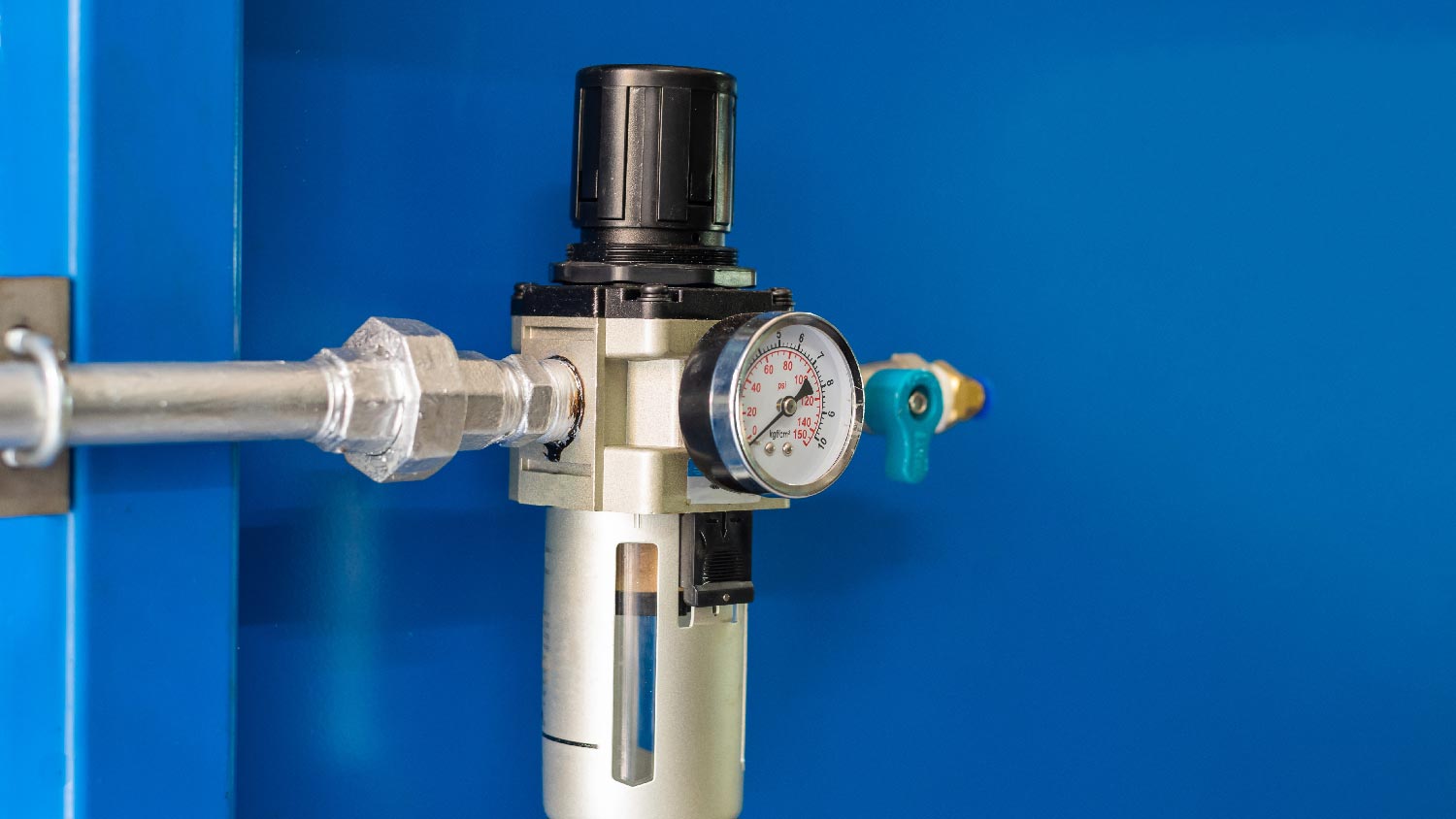
The average cost to replace a bathroom faucet typically ranges from $170 to $360. Faucet installation costs often vary based on the selected fixture hardware.
What if your wastewater wasn’t a total waste?


Drain water heat recovery systems cost between $300 and $500
Homeowners can get their money back in energy savings in as little as 2.5 years
A drain water heat recovery system reduces the energy consumption of your water heater by up to 25%
The system requires no maintenance and contains no parts
Most drain water heat recovery systems have a lifespan of 30 years
Want to conserve energy? Look no further than a drain water recovery system. These systems tackle one of the biggest energy wasters in your home: heating hot water. Every time you shower or run the dishwasher, you fritter away hot water. A drain water heating recovery system, also known as a drain line heat exchanger, recovers the water and reheats it to save you money and reduce waste. Here’s what you need to know about drain water recovery systems.
A drain water heat recovery system consists of two copper pipes and a coil. The pipes transfer the existing heat in your drain water to the new clean water as it passes through a second pipe before it reaches your water heater.

The heat exchanger is essentially two short sections of pipe fused against each other. Though the pipes are fused, the water never mixes. Warm wastewater flows through the larger drain line. The smaller section circulates clean water near the drain line, sometimes winding around it, which forces heat to transfer from the dirty water to the clean.
Rather than flowing into your sewer system or septic tank, the hot water is recycled and used to preheat the new clean, cold water on its way to your water heater.
You’ll gain the most savings when used with simultaneous water flows such as showers, but systems with additional storage capacity can store water for later use in appliances such as washing machines and dishwashers. The system's exact size will depend on your household hot water needs. Three to four feet of vertical drain stack is usually enough to reduce your hot water energy consumption by up to 25%.

The technology used in drain water heat recovery systems minimizes energy consumption. It also lowers your energy bills and prolongs the life of your water heater. Even better, these systems are compatible with all different water heating systems, including tank water heaters and on-demand models.
A drain water heat recovery system can reduce the energy consumption of your water heater by up to 25%. Less energy consumption also means you’ll pay less for your energy bills every month with savings beginning in as little as a year for large households.
It’s quite simple. Pre-heating cold water on its way to your water heater takes less time and energy to produce the temperatures needed to use your shower, dishwasher, and washing machine. The less wear-and-tear your water heater endures, the longer you can extend your water heater’s life span.
Drain water heat recovery systems work with a variety of water heating systems, including demand, electric, gas, solar, and tankless water heaters. This makes heat exchangers compatible with any type of water heater you choose to install in your home.
Drain water heat recovery systems are truly a one-and-done add-on because their copper pipes can last for decades, and they don’t contain any parts that need repairing or replacing. Heat exchangers have been known to last over 30 years. Once a local plumber installs it, you can enjoy its energy and money-saving benefits without needing to lift a finger to maintain it.
The price you’ll pay for drain water heat recovery systems ranges from $300 to $500, depending on the installer’s labor rate and the region where you live. A family of four taking up to eight daily showers can recoup the savings in as little as one year. The more you use the system the more money you’ll save. A reputable, local plumber can install the system correctly in about two hours.
From average costs to expert advice, get all the answers you need to get your job done.

The average cost to replace a bathroom faucet typically ranges from $170 to $360. Faucet installation costs often vary based on the selected fixture hardware.

Making updates to your home? You may need to move your gas line to fuel new appliances or meet code regulations. We’ll cover the cost of moving a gas line, plus project tips.

The cost to add plumbing to a detached garage depends on several factors, including the type of plumbing and the garage's distance from your home.

Find out the average water pressure regulator replacement cost, key price factors, and tips to save on your project. Get transparent, expert-backed cost info.

Winter can be particularly harsh on your plumbing—from water heater issues to frozen pipes. As the weather gets chilly, use these tips to prepare your home and avoid a costly winter plumbing leak.

Frozen underground pipes can lead to costly damage to your home. Use this guide to learn how to safely thaw them, prevent future freezes, and protect your home from expensive water damage.